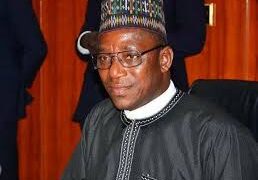After claims of losing about $1.1bn annually to combating malaria health crisis, the federal government under the Ministry of Health and Social Welfare has introduced vaccines into the National Routine Immunization Schedule.
Based on reports, Nigeria accounts for approximately 27% of the global malaria burden and 31% of malaria deaths worldwide. The federal government has said the malaria vaccine will now be part of the national routine immunization schedule.
Prof. Muhammad Ali Pate, the coordinating minister for Health & Social Welfare, at the inaugural meeting of the Advisory on Malaria Elimination in Nigeria (AMEN) held in Abuja last week, described malaria as not just a health crisis but also an economic and developmental emergency that must be eliminated.
The coordinating minister said in his speech that the federal government is committed to eradicating malaria.
He claimed that Nigeria continues to suffer from malaria at an intolerable rate. “Our nation is most affected by malaria, accounting for 27% of all cases and 31% of all deaths worldwide. In 2022, over 180,000 Nigerian children under the age of five lost their lives to malaria—a tragedy we have the tools to prevent”, he said
On its economic consequences, the coordinating minister emphatically declared, “This is not just a health crisis; it is an economic and developmental emergency. Malaria reduces productivity, increases out-of-pocket health expenditures, and compounds the challenges of poverty. The annual loss to Nigeria’s GDP from malaria exceeds $1.1 billion, a stark reminder of the economic imperative of elimination.”
According to Prof. Pate, eradicating malaria is a crucial part of the Nigeria Health Sector Renewal Investment Initiative (NHSRII) framework for changing the health sector in line with the current administration’s Renewed Hope Agenda.
In an update, the National Primary Health Care Development Agency (NPHCDA) disclosed on its X handle that malaria vaccines would now be part of the national routine immunization.
He claims that the vaccine will safeguard millions of youngsters and bring the nation one step closer to a future free of malaria.
It stated that the states of Kebbi and Bayelsa will see the start of the first phase of the malaria vaccine rollout.
Hundreds of thousands of children under the age of five die from malaria every year, making it one of the deadliest diseases in Nigeria and Africa.
Nigeria accounts for approximately 27% of the global malaria burden and 31% of malaria deaths worldwide.
Gavi, the Vaccine Alliance, donated one million doses of the R21/Matrix-M malaria vaccine to the federal government earlier in October, in which the World Health Organization (WHO) and UNICEF provided assistance in its delivery.
The R21 vaccine was developed by scientists at Oxford University and made by the Serum Institute of India and Novavax. Nigeria is one of the first countries in the world to back the vaccine. Malaria vaccination is only for the prevention of malaria in children, not adults.
The Executive Director of NPHCDA, Dr. Muyi Aina, said the vaccine will be administered to children aged five months to 15 months as part of routine immunization.
“The introduction will be expanded to other states and integrated into our national routine immunisation schedule as we receive additional doses.
“The second phase will target 19 states and FCT, while the third phase will target the remaining 15 states. Both phases are scheduled for 2025,” he said.




































